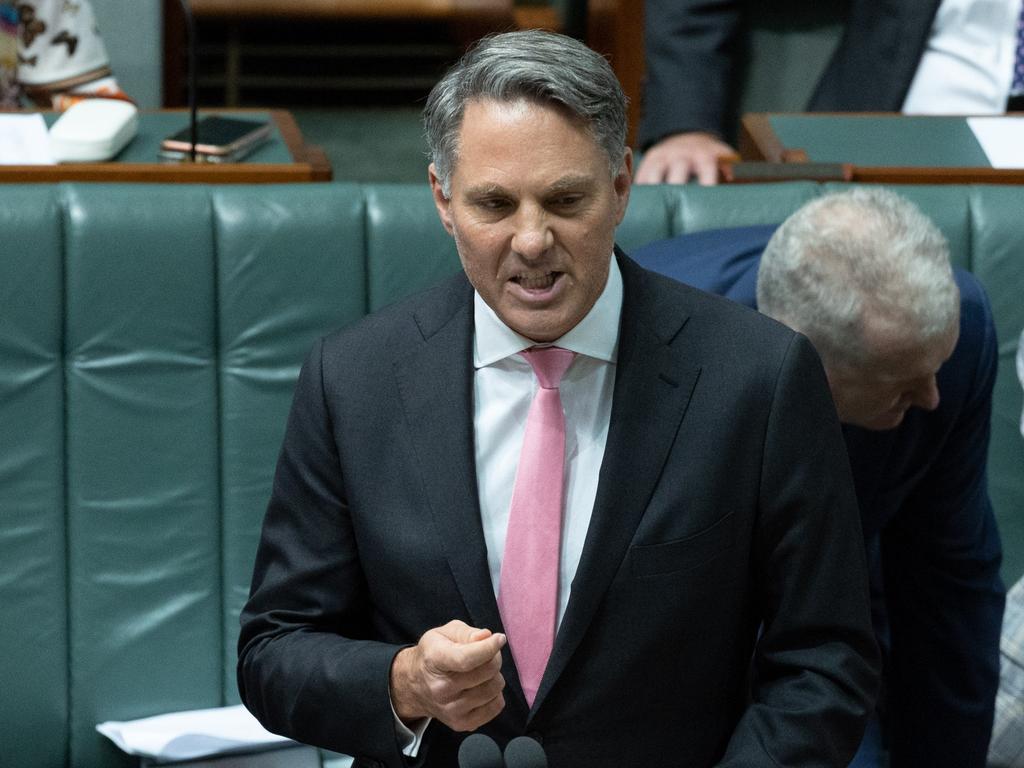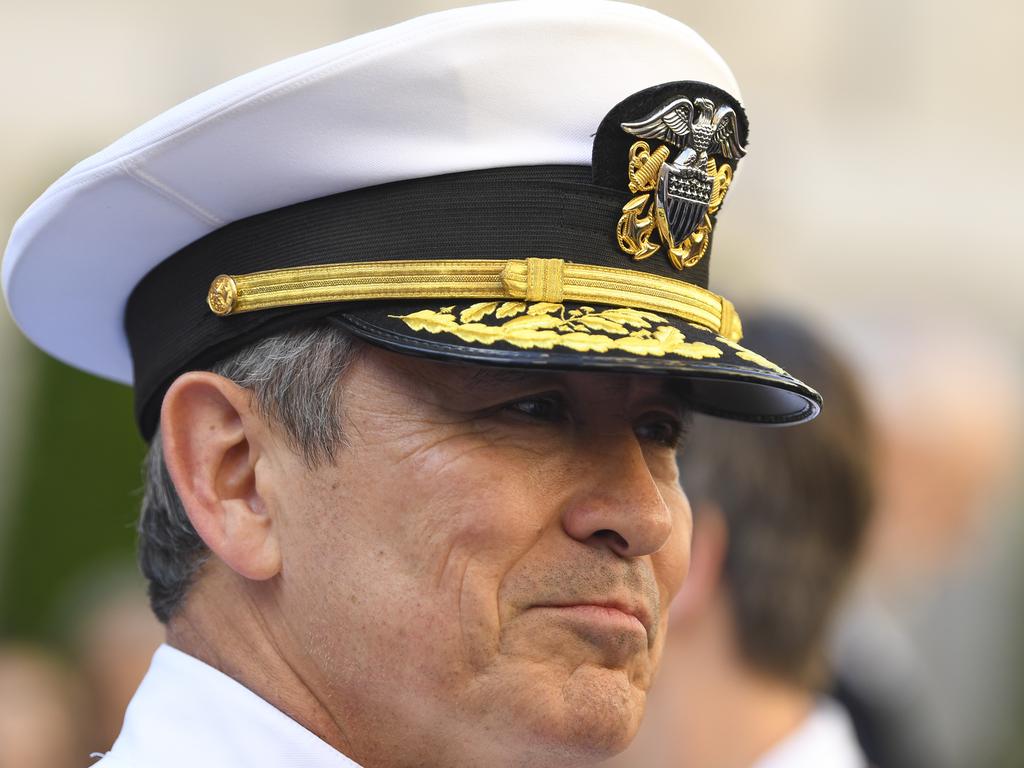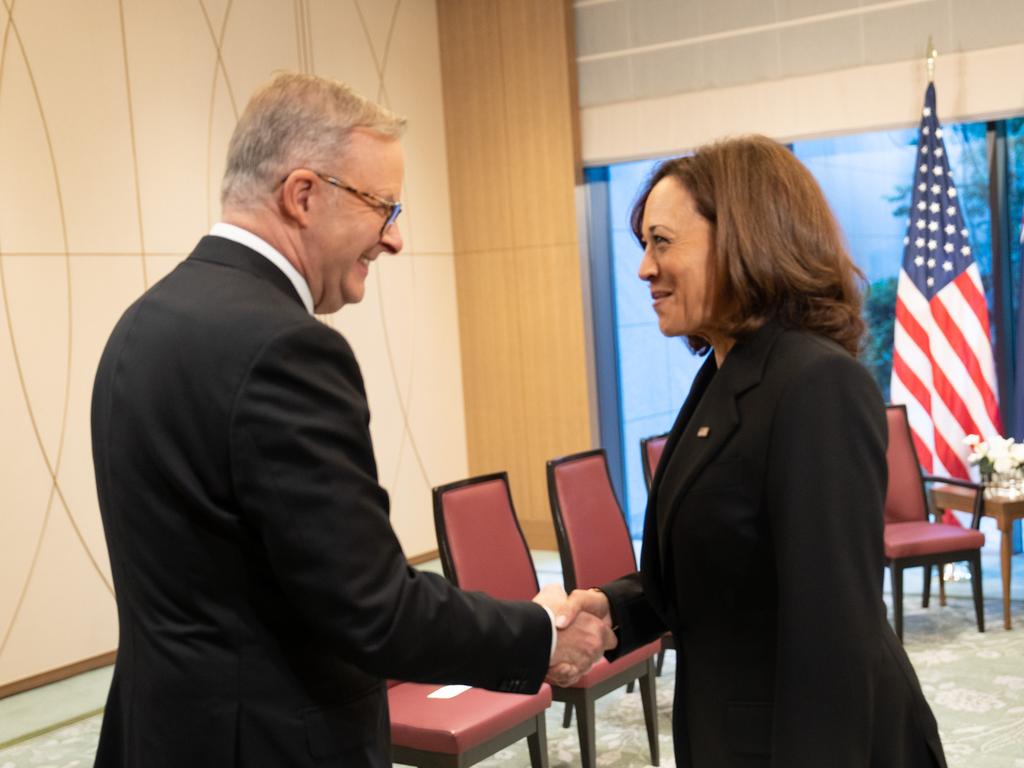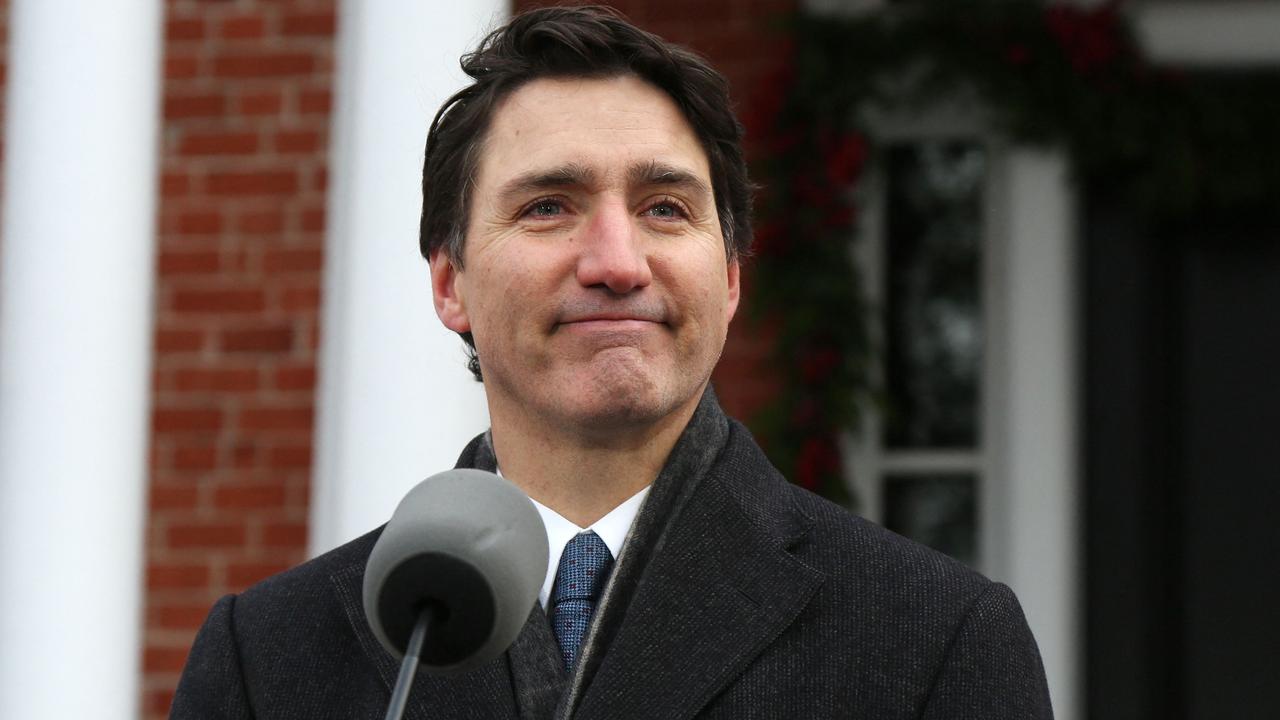AUKUS the cream on top of historical foreign policy cake
Labor would do well to remember its bipartisan support of Scott Morrison’s deal that will likely go down as one of the most significant defence achievements in our history.
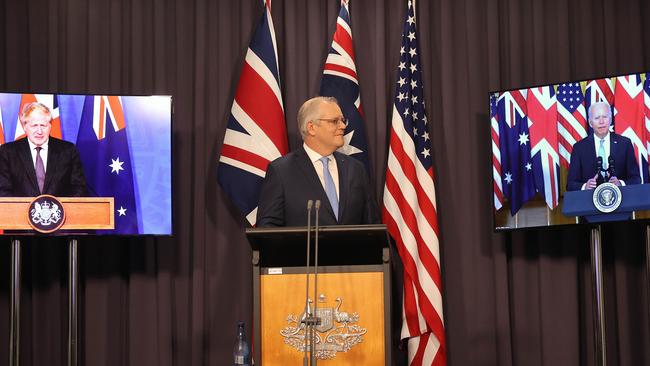
Over the decades since Federation in 1901, there have been differences on occasions between the Coalition and the Labor Party with respect to foreign policy. However, for the most part, Australian governments of whatever political flavour have pursued similar approaches.
The reason for this is plain to see. Australia has a relatively small population located on a vast continent. The very size of the nation would make military invasion a difficult task to achieve. The evidence indicates that Imperial Japan looked at the possibility of invading Australia after Japan’s attack on US forces at Pearl Harbour in December 1941 but rejected the idea.
A nation like Australia can be conquered without military victory. This can be achieved by interdicting the nation’s sea lanes (initially) and now air routes. An island nation, particularly one that trades in goods and services, cannot survive a long-term blockade.
Initially, Australia relied on Britain to help protect the nation’s sea lanes. But the United Kingdom became over-committed in the early years of the Second World War when, with the support of the likes of Canada, Australia and New Zealand, it stood virtually alone against Nazi Germany for around two ye
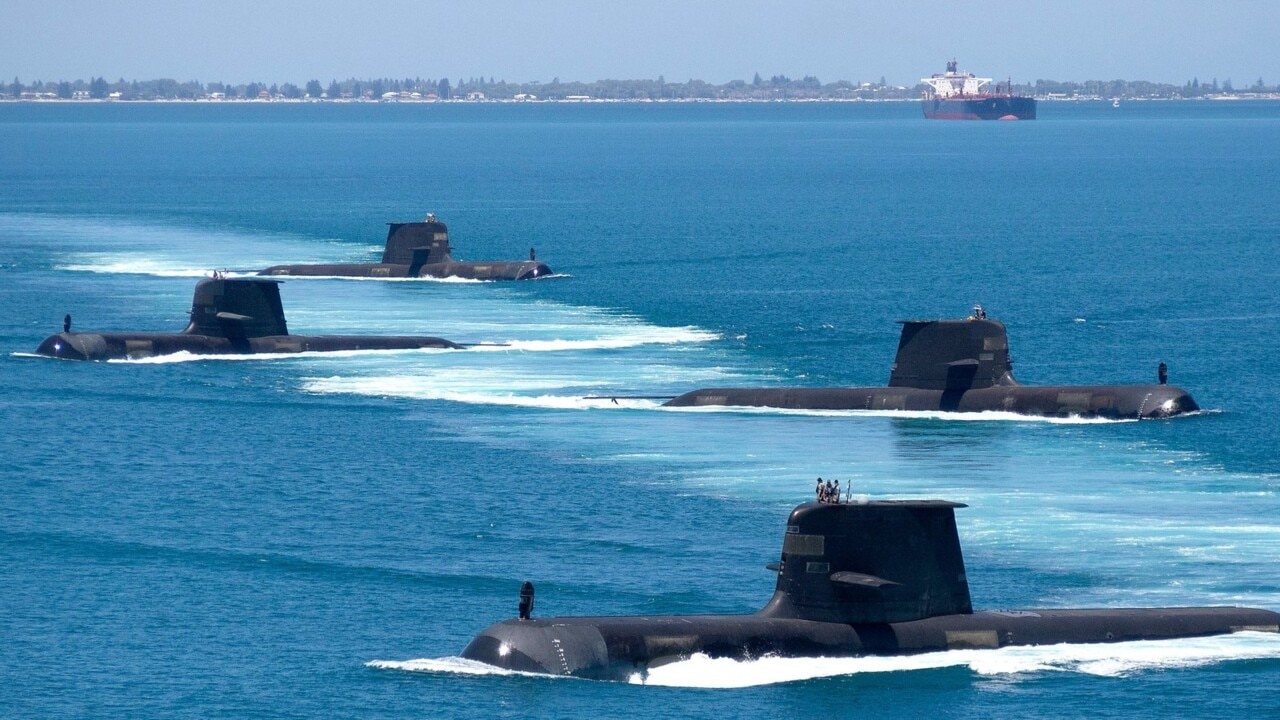
ars.
The United States, under the leadership of President F.D. Roosevelt, was neutral at the time. And the communist Soviet Union had entered into a pact with Nazi Germany – the Hitler-Stalin Pact – which lasted from August 1939 until June 1941.
Contrary to mythology, Australia had good relations with the US under the United Australia Party governments (no relation to Clive Palmer’s reinvention of the organisation in recent years). The UAP administrations were led by Joseph Lyons (between January 1932 and his death in office in April 1939) and Robert Menzies (from April 1939 up until August 1941).
However, it was Labor prime minister John Curtin who declared in March 1942, after the fall of the British outpost in Singapore to Japan, that Australia now looked to the US.
It is true that, at the outbreak of World War I in August 1914, Australia was a dominion of Britain without an independent foreign policy. The same was true when Australia, under Menzies’ leadership, followed Neville Chamberlain’s government in declaring war on Germany in September 1939. But the fact is that Australia’s leaders in 1914 and again in 1939 went to war with Britain against Germany willingly because they thought that this was in Australia’s national interest. Britain at the time could not force Australia to take up arms on its behalf.
Australia’s leaders believed that if Australia supported Britain during its time of conflict, then Britain would be more likely to continue to protect the security of Australia’s lines of communication into the future.
The same reasoning applied after the US replaced Britain as Australia’s main ally in the Pacific and Indian oceans from the early 1940s. The Labor governments led by Curtin and then Ben Chifley up to December 1949 supported the alliance – which was formalised by the ANZUS (Australia, New Zealand, United States) Treaty in September 1951 during Menzies’ prime ministership. These days, New Zealand is but a bit player in the arrangement.
In more recent times, the Labor governments led by Bob Hawke, Paul Keating, Kevin Rudd, Julia Gillard – and now Anthony Albanese – have enjoyed good relations with their US counterparts. There was some tension when Gough Whitlam was prime minister between December 1972 and December 1975 but the alliance survived the years of difficulty.
In the 1950s, 1960s and into the 1970s, about a third of the Labor Party caucus in Canberra would have been opposed to the Australia-American Alliance to a greater or lesser extent. Today such views are confined to sections of the Greens and other far-left groups.
The change in political direction reflects the fact that, after some two decades in opposition in the 1950s and 1960s, Labor experienced relatively long terms in office in recent decades. As such, modern Labor administrations have seen Australia’s security and intelligence interests in much the same light as all governments since 1901. Like all political leaders, Scott Morrison made some errors during his time in office. But there was one stunning achievement which is likely to go down in history as one of Australia’s most significant foreign and defence policy achievements. Namely, the AUKUS agreement – which has been embraced by the Albanese government.
The story is well told in Paul Kelly’s Morrison’s Mission (Penguin, 2022) and Simon Benson and Geoff Chambers’ Plagued (Pantera Press, 2022). This was very much an Australian initiative led by Morrison and his advisers with the support of the (then) British prime minister Boris Johnson and his advisers. As Kelly demonstrates, the success of the proposal turned on the agreement of President Joe Biden.
AUKUS has a dual focus. Australia will work with the US and UK to build nuclear-powered submarines suitable to its requirements. There will also be technology-sharing between the AUKUS nations. All three countries are responding to the challenge of China.
As with all such agreements, each nation has its own interests at heart. The US wants to increase its influence in the Pacific in response to China’s massive military build-up. The UK wants to revive its role in the same region. And Australia continues its policy of seeking allies to help secure air routes and sea lanes. Sure, France was upset that Australia’s commitment to AUKUS led to the cancellation of Australia building French-designed conventional submarines – and the secrecy involved in the decision. But without such secrecy it is unlikely AUKUS would have come about since France would have put enormous pressure on Biden, with a little help from Francophones in the Biden administration, to junk the proposal.
The Australia/France relationship seems to be improving under the Albanese government as time heals wounds. The important point is that – primarily in response to China’s challenge – Australia’s relationships with such nations as Japan, India and Indonesia share a common purpose.
Today, the high-profile opponents of AUKUS are the likes of Keating and one-time Liberal Party leader Malcolm Turnbull. What they have in common is that both are former prime ministers. Governments, on the other hand, are responsible for delivering security.
Gerard Henderson is executive director of the Sydney Institute.


